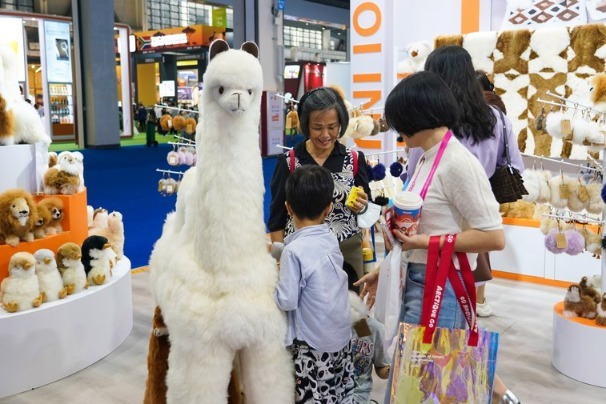Telling data of country's essential contributions


With the global industrial and supply chains going into shock as a result of the COVID-19 pandemic, China has made crucial contributions over the past three years to promote the stability and recovery of the world economy.
Those essential contributions have not only exposed the failure of the trade war the United States has been waging against China, but also highlighted the irreplaceability of China's important position and role in the global industry and supply chains.
In 2022, the total value of China's imports and exports exceeded 40 trillion yuan ($5.97 trillion) for the first time, hitting 42.07 trillion yuan. That means the world's second-largest economy has maintained steady growth in foreign trade, up 7.7 percent year-on-year, despite the difficulties it has faced. It has not been easy for China to overcome the adverse impacts of not only the US' trade attacks, but also the Ukraine crisis and the COVID-19 pandemic.
That its foreign trade was able to realize such strong growth momentum last year is due to its high-level opening-up. And the pillars for this have been the institutional reforms that have been implemented to improve the domestic business environment, China's active participation in multilateral and bilateral trade agreements, the fast development of domestic free trade areas and responsive and effective pro-trade and pro-business policies that have been introduced to support enterprises, as well as the country's painstaking efforts to make innovation, efficiency and services its new comparative advantages in global trade.
Most importantly, its foreign trade structure continues to be upgraded.
For instance, electromechanical products with high added value account for an increasingly larger share of China's exports. In the past year, China's mobile phones, computers, integrated circuits and so on accounted for nearly 60 percent of its total annual exports.
In particular, new energy vehicles have become a leading export. China exported more than 3.11 million automobiles last year, a year-on-year growth of 54.4 percent. Among them, exports of new energy vehicles increased 1.2 times year-on-year, reaching 679,000 units.
In effect, the US' high-tech blockade has only spurred Chinese enterprises to bid farewell to their comfort zone and attach greater significance to foreign cooperation and self-reliance at the same time. It has also prompted the country to ensure supplies of energy and food in order to safeguard national security.
So the robust increase of foreign trade has given a strong boost to China's economic growth and will make positive contributions to consolidating the foundation for its economic recovery and keeping the economy operating within a proper range.




